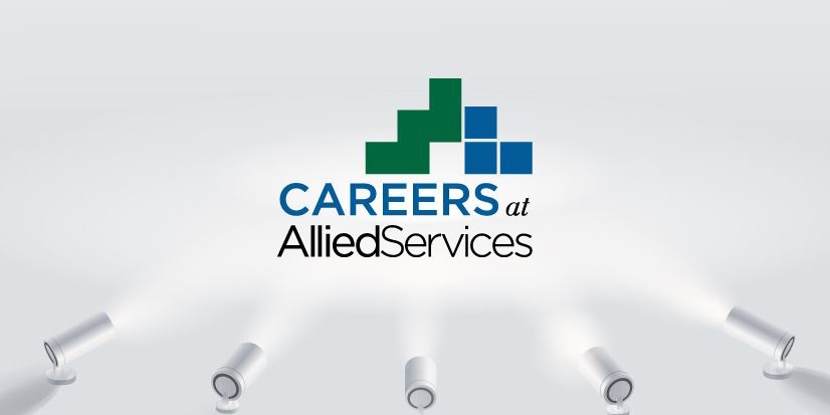Treating Lower Extremity Lymphedema
- Category: News, Lymphedema
- Posted On:
- Written By: Allied Services Integrated Health

Lower extremity lymphedema is often under-recognized and, as a result, underserved as a patient group. While many individuals attribute cancer as the top cause of lower extremity lymphedema, it is actually chronic venous insufficiency (CVI.)
In an article published in The Journal of the American College of Certified Wound Specialists, Dr. W. Farrow describes phlebolymphedema as a two-system failure that can result in a downward spiral of worsening symptoms. Clinicians need to address the veins and lymphatics, or this issue will continue to worsen. To put it simply, venous insufficiency is a failure of the veins to circulate the blood satisfactorily.
Some secondary causes of CVI are obesity, trauma, pregnancy, surgery, extended periods of standing or sitting, and muscle weakness. Studies have shown that CVI is a top reason for patients to end up transitioning to lymphedema-phlebolymphedema. Phlebolymphedema affects about 5% of the population, about 16 million patients in the United States.
Lymphedema is a progressive and chronic condition in which protein-rich fluid builds up in the interstitial tissue spaces. This can lead to tissue damage and adversely affect the immune system. With the onset of lymphedema, the lymphatic system cannot successfully pick up and convey fluid back into the cardiovascular circulation.
Phlebolymphedema patients face major issues with their condition such as cellulitis, venous leg ulcers, pain, functional performance deficits with functional mobility and completion of activities of daily living (ADL.)
We have a committed, certified team of therapists who are specially trained to work with lymphedema patients. The Lymphedema Management Program bases its model of treatment on Complete Decongested Therapy which consists of Manual Lymph Drainage, Compression Bandaging with transition to compression garments, skin and nail care precautions, patient education in self-care, and training in a home program to promote lymphatic circulation.
About the author: Diane Jason, OTR/L is a Lymphedema Association of North Amerian (LANA) Certified Lymphedema Therapist. She works with patients at Allied Services Wilkes-Barre Rehab Center. Diane has worked as an Occupational Therapist since 1989. She received her lymphedema certification in 1999, and is a graduate of the Academy of Lymphatic Studies. She became a LANA-certified therapist in 2003.
Lymphedema Treatment at Allied Services
- Learn more about Lymphedema treatment at Allied Services
- Call 570-348-1360 (Scranton) or 570-826-3900 (Wilkes-Barre)
- Find Lymphedema specialists at Allied Services



